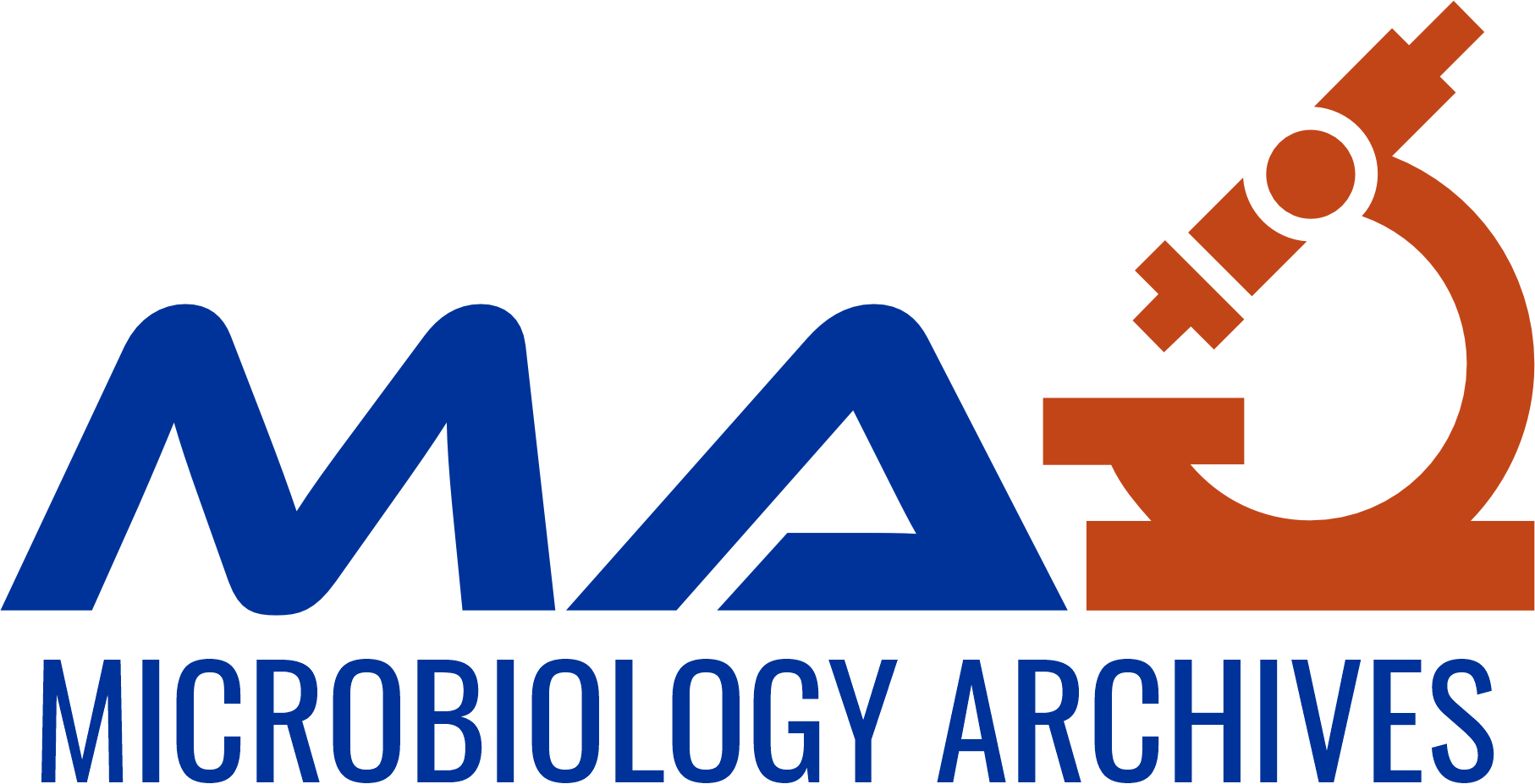Authors: Murugesan Mohana Keerthi
Journal Name: Microbiology Archives, an International Journal
DOI: https://doi.org/10.51470/MA.2024.6.2.03
Keywords: Microbiology, Metagenomics, Synthetic Biology, Antibiotic Resistance, Bioremediation, Environmental Sustainability, Genetic Engineering
Abstract
Microbiology is a cornerstone of scientific advancement, offering profound insights and solutions to global challenges. This explores recent innovations, including metagenomics, synthetic biology, and microbial applications in environmental sustainability, which have expanded the horizons of microbial research and its real-world applications. Simultaneously, it addresses critical challenges such as antibiotic resistance, scalability, ethical concerns, and funding gaps that impede progress and interdisciplinary collaboration, responsible innovation, and the integration of emerging technologies, this editorial outlines pathways to harness the potential of microbial science for a sustainable and equitable future.
Introduction
Microbiology, the study of microscopic organisms, has consistently been at the forefront of scientific discovery. From the discovery of penicillin to the development of CRISPR technology, the microbial world has provided humanity with countless tools and insights that have revolutionized medicine, agriculture, and industry [1]. Today, as we stand on the cusp of new breakthroughs, it is vital to reflect on the innovations and challenges shaping the future of this ever-evolving field.
Innovations Driving Microbial Research
Recent advancements in microbiology have been fueled by cutting-edge technologies and interdisciplinary approaches. These innovations are opening new avenues for exploration and application:
1. Metagenomics and Microbiome Studies
The advent of metagenomics has enabled researchers to study microbial communities in their natural environments without the need for culturing. This has provided unprecedented insights into the human microbiome, soil ecosystems, and oceanic microbial diversity. Understanding these communities is not only enhancing our knowledge of microbial interactions but is also leading to breakthroughs in personalized medicine and sustainable agriculture [2].
2. Synthetic Biology and Genetic Engineering
Synthetic biology has allowed scientists to design and engineer microbes with desired traits. These genetically modified microorganisms are being used to produce biofuels,biodegradable plastics, and high-value pharmaceuticals. The ability to manipulate microbial genomes with precision has also accelerated vaccine development and therapeutic strategies for infectious diseases.
3. Microbial Applications in Environmental Sustainability
Microbes are being harnessed to address pressing environmental issues. Bioremediation techniques use bacteria and fungi to clean up oil spills, degrade plastic waste, and treat industrial effluents [3]. Methane-oxidizing microbes are being explored as tools to mitigate greenhouse gas emissions, demonstrating their potential in combating climate change.
4. Emerging Technologies in Microbial Imaging and Analysis
Advances in microscopy and imaging technologies, such as cryo-electron microscopy and single-cell sequencing, have revolutionized our ability to study microbial structures and functions at an atomic level. These tools are providing new insights into microbial physiology and their interactions with hosts and environments.
Challenges in Microbiology
While these innovations are transformative, the field of microbiology also faces significant challenges that must be addressed to unlock its full potential:
1. Antibiotic Resistance
The rise of antibiotic-resistant bacteria poses a severe threat to global health. The overuse and misuse of antibiotics in medicine and agriculture have led to the emergence of superbugs, making infections increasingly difficult to treat. Addressing this challenge requires the development of novel antimicrobial agents, alternative therapies, and global policies for responsible antibiotic use [4].
2. Scalability and Reproducibility
Many microbial applications, particularly in synthetic biology and industrial microbiology, face challenges in scaling up from laboratory settings to commercial production. Ensuring reproducibility and stability of microbial processes is critical for their widespread adoption.
3. Ethical and Safety Concerns
The manipulation of microbial genomes and the release of genetically modified organisms into the environment raise ethical and biosafety concerns. Establishing robust regulatory frameworks and public awareness initiatives is essential to ensure the responsible use of microbial technologies [5].
4. Funding and Interdisciplinary Collaboration
Microbial research often requires significant investment in infrastructure and expertise. Encouraging interdisciplinary collaborations and securing sustained funding are vital to advancing the field. Policymakers and funding agencies must recognize the long-term benefits of microbiology research and prioritize its support.
The Path Forward
To shape a sustainable and innovative future for microbiology, the scientific community must embrace collaboration, creativity, and adaptability. Encouraging partnerships between academia, industry, and government can accelerate the translation of microbial research into real-world applications. Furthermore, integrating artificial intelligence and machine learning into microbiology can enhance data analysis, predictive modeling, and discovery processes.Education and public engagement also play a critical role in fostering a deeper appreciation for the microbial world. The significance of microbes in everyday life, we can inspire the next generation of microbiologists and promote informed decision-making regarding microbial technologies.
Conclusion
The field of microbiology stands as a beacon of hope and innovation, addressing some of the most pressing challenges facing humanity and explore the microbial frontiers, we must navigate the accompanying challenges with resilience and responsibility. By leveraging innovations and fostering global collaboration, microbiology will undoubtedly remain a cornerstone of scientific progress, shaping a healthier, more sustainable, and equitable future for all.
References
- Kassem, A., Abbas, L., Coutinho, O., Opara, S., Najaf, H., Kasperek, D., … &Tiquia-Arashiro, S. (2023). Applications of Fourier Transform-Infrared spectroscopy in microbial cell biology and environmental microbiology: advances, challenges, and future perspectives. Frontiers in Microbiology, 14, 1304081.
- Ramírez Rojas, A. A., Swidah, R., & Schindler, D. (2022). Microbes of traditional fermentation processes as synthetic biology chassis to tackle future food challenges. Frontiers in Bioengineering and Biotechnology, 10, 982975.
- Mishra, B., Varjani, S., Kumar, G., Awasthi, M. K., Awasthi, S. K., Sindhu, R., & Zhang, Z. (2021). Microbial approaches for remediation of pollutants: innovations, future outlook, and challenges. Energy & Environment, 32(6), 1029-1058.
- Huws, S. A., Creevey, C. J., Oyama, L. B., Mizrahi, I., Denman, S. E., Popova, M., &Morgavi, D. P. (2018). Addressing global ruminant agricultural challenges through understanding the rumen microbiome: past, present, and future. Frontiers in microbiology, 9, 2161.
- Wang, H. L., Hopfer, H., Cockburn, D. W., & Wee, J. (2021). Characterization of microbial dynamics and volatile metabolome changes during fermentation of Chambourcin hybrid grapes from two Pennsylvania regions. Frontiers in Microbiology, 11, 614278.
